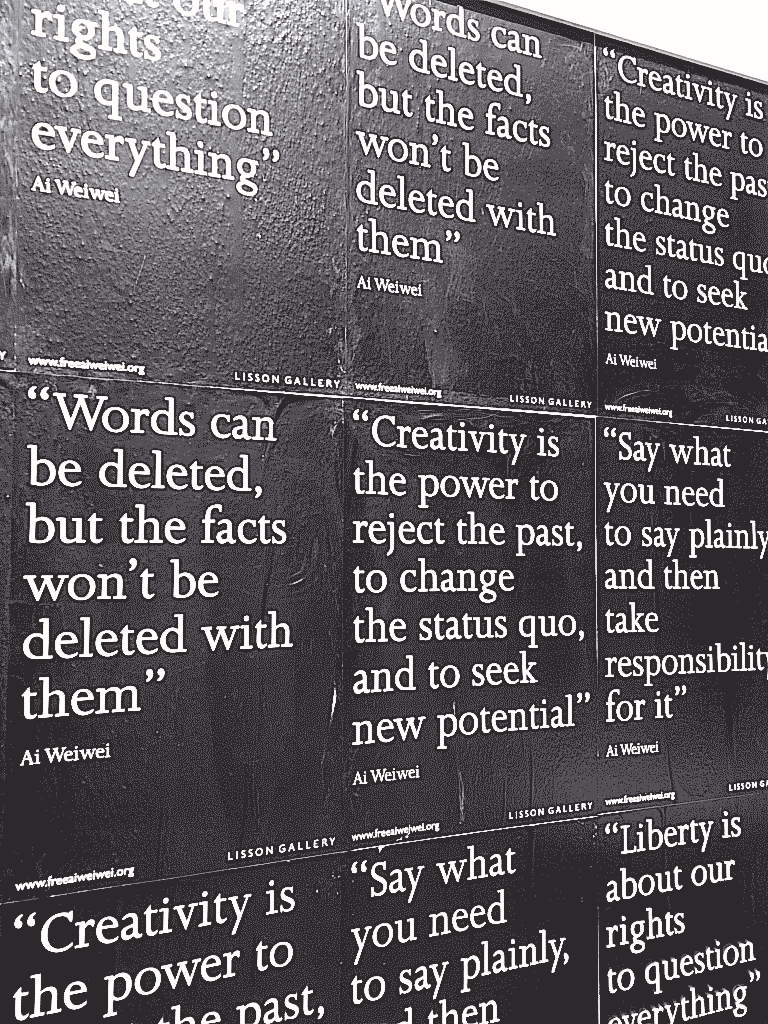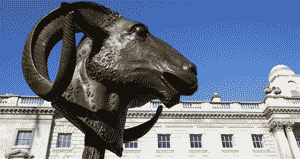31 May 2011 | Index Index, minipost
Hunan Broadcasting System, one of China’s largest television networks, has told the Financial Times it will reduce entertainment content and revamp its programming to comply with new government broadcasting standards. The network has outposts in Hong Kong and North America and is known for airing Super Girl, a version of UK’s Pop Idol.
16 May 2011 | Asia and Pacific, China
Last Friday, a newspaper editorial musing on the missing artist Ai Weiwei was blocked online. The editorial, which was appeared in the Southern Metropolis Daily, marked the third anniversary of the Sichuan earthquake, an event that Ai investigated. The Guardian translated part of the editorial that reflected on Ai and the deaths of schoolchildren in the disaster:
On the day of mourning we called them home and wished them peace. We gathered together all the human evidence of them we could. We read their names together … We did so much, and yet we did too little … We can but present the steel zodiac, offer up porcelain sunflower seeds, symbolic memorials to your lives once so tangible.
The sunflower seeds clearly refer to Ai’s ongoing installation at Tate Modern. David Bandurski, editor of China Media Project pointed out that in a bold move, one of China news portals, Tencent, had republished the editorial on their online editorial pages. But today (May 16) the editorial can no longer be found on the site.
Last night Lu Qing, Ai’s wife, was taken to an undisclosed location and allowed to see her husband. During the 15 minute conversation she received assurances that Ai has access to his diabetes medication and is receiving regular food and care. He wasn’t in handcuffs and despite the fact that prisoners are usually shaved he still has his signature beard.
13 May 2011 | News
Artist Ai Weiwei has been missing for 40 days, Leah Borromeo reports from the opening of his new show
Chinese artist Ai Weiwei was detained on 03 April 2011 by the authorities at Beijing Capital Airport preparing to board a scheduled flight to Hong Kong. He has yet to be charged and the state has not yet confirmed his whereabouts.
A major survey show of his work has opened at London’s Lisson Gallery joining his first public installation at Somerset House — “Circle of Animals”. As one of the leading cultural figures of his generation, Ai is a political artist in work and in deed. With work that juxtaposes the antiquity and craft of Chinese culture with modern techniques and multimedia platforms, his work has a voice that resonates through histories.
From a junkyard assemblage of domestic doors made from pristine slabs of marble to Han Dynasty vases covered in bold industrial paint to a marble CCTV camera pointed into the streets of London, the Lisson’s compilation of Weiwei’s work from the past six years shows the activism in his art and the artistry in his activism.
 Wheatpasted on the walls outside the gallery are words from Ai himself:
Wheatpasted on the walls outside the gallery are words from Ai himself:
“Liberty is about our rights to question everything.”
“Say what you need to say plainly and take responsibility for it.”
“Creativity is the power to reject the past, to change the status quo and to seek new potential.”
“Words can be deleted, but the facts won’t be deleted with them.”
The Lisson’s founder and director Nicholas Logsdail argues that Weiwei’s work “has become politicised because of his position. The genius lies in politically gentle forms that are open to interpretation — only when you look into what constitutes the work can you see he’s rebaptised antiquity with a message.”
In the days of the Young British Artists, established galleries like the Lisson and larger institutions like Tate and the Guggenheim were depoliticised. Should political art be shown it was obfuscated beneath layers of visual rhetoric or in historical retrospectives where the immediacy of the message passed its dateline. Thanks to Ai Weiwei and his disappearance at the hands of his own state, an art world already politicised by funding cuts is speaking out. We’ve all become agit-prop. Tate Modern stencilled “Free Ai Weiwei” across the top of its building. Anish Kapoor dedicated his Leviathan sculpture in Paris to Ai Weiwei. Bob and Roberta Smith held a reading of names to remind people that dozens of other artists, writers, and supporters of free expression have either been detained or gone missing at the hands of the Chinese. The Guggenheim has launched an online petition for his release and the Lisson is inviting all visitors to its show to be photographed with a “Free Ai Weiwei” placard that will be broadcast on the internet. There is no scope to be subtle when freedom is at stake.
Greg Hilty, the Lisson’s curatorial director, said that after Weiwei’s disappearance there was “no question” of whether to continue with the show. “Ai Weiwei consistently places himself at great risk for his art. We are showing that his art and activism goes beyond China. He’s an example for social criticism and free expression around the world. To Weiwei, there are no sacred cows.”
Logsdail says: “If you don’t support Ai Weiwei, you’re mental. Freedom to express yourself is what it means to be an artist.”
Believing in total transparency, truth and openness in a society obsessed with micromanaging the lives of its 1.3billion inhabitants is a problem for Ai Weiwei. China’s schizophrenic relationship with maintaining repressive regime structures whilst successfully engaging with a free market economy are themes that Weiwei’s work show. A compulsive communicator, his Twitter account logged the artist’s candid thoughts and movements. His belief is that if you have nothing to hide, you have nothing to spy on.
A documentary about Ai by Alison Klayman asks “Can an artist change China?”. Not just an artist, this artist. An artist that photographed himself flashing his middle finger at Tiananmen Square. An artist whose studio was trashed by Chinese authorities and beaten when he investigated the deaths of schoolchildren in post-earthquake Sichuan. An artist with a voice and a worldwide audience that China is scared of.
Ai Weiwei is not a revolutionary. He is an artist who shows us what it is to be human by example. He is the bridge between China’s past and its future.
www.freeaiweiwei.org
www.lissongallery.com
12 May 2011 | News
 An extract from a speech by Tate Modern director Chris Dercon at the opening of a new show by imprisoned Chinese artist Ai Weiwei at Somerset House, London
An extract from a speech by Tate Modern director Chris Dercon at the opening of a new show by imprisoned Chinese artist Ai Weiwei at Somerset House, London
(more…)


